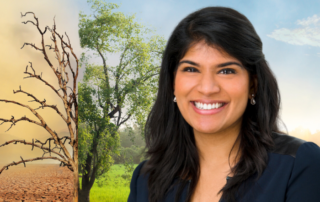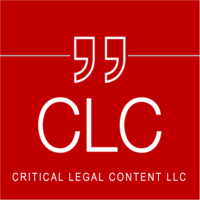
Emerging Litigation Podcast
Algorithmic Software Facilitated Price Fixing with Jonathan Rubin
Everyone knows that price fixing is against the law, chiefly Section 1 of the federal Sherman Antitrust Act of 1890. Competitors may not collude to set prices. However, there are relatively new price-calculation tools that some companies maintain take them out of the equation. With these tools, shared across an industry, firms do not have to directly swap private information with competitors. Instead, they feed their data to a third-party which uses algorithms to come up with prices. In this episode, we discuss what algorithmic or software-facilitated pricing is, what the law says about price collusion, how this new pricing mechanism violates the law, and recent developments in litigation. Our guest highly regarded antitrust attorney Jonathan Rubin, Partner and Co-Founder of MoginRubin LLP.
Biometric Privacy Litigation and Coverage Disputes with John Leonard and Cort Malone
Biometric data is big business. In many cases it even helps make our lives better. It also presents significant risks for a variety of parties, in addition to those of us who surrender our data. Companies collecting, storing, utilizing, and monetizing the data face penalties and litigation bolstered by the increasing number of states enacting biometric information privacy acts, or BIPAs, the first of which was in Illinois. In this episode, we discuss the state of biometric privacy litigation, the regulatory landscape, insurance coverage considerations, and recent rulings with guests John Leonard and Cort Malone of Anderson Kill P.C.
Mitigating Greenwashing Litigation Risks with Ramya Ravishankar
In this episode, we discuss mitigating greenwashing litigation risks with guest Ramya Ravishankar, General Counsel at HowGood, an independent research firm that helps the world’s largest food brands meet their sustainability commitments. Listen and learn more!
A Shameless Plug for Our Content Services
Your content marketing is everything you’ve ever dreamed of. Right?

Critical Legal Content was founded by Tom Hagy, former Editor & Publisher of Mealey’s Litigation Reports and VP at LexisNexis, founder of HB, current litigation podcaster and editor-in-chief. CLC’s mission is to help smaller firms and service providers not only create content — blogs, articles, papers, webinars, podcasts (like the stuff on this site) — but also to get it out there. How? Via social media, this website, your website, and potential via our podcast and journal which we publish in collaboration with vLex Fastcase and Law Street Media. The goal is to attract readers and dizzy them with your brilliance.
*Inspired by actual events.
Create content like a real legal publisher.
Journal on Emerging Issues in Litigation
Property Insurance Coverage for Emerging Risk: Underground Climate Change
Studies have shown that “underground climate change” is affecting ground soil conditions, causing structural strains on buildings and exacerbating cracks and defects in walls and foundations. The authors, Dennis Artese, Ethan Middlebrooks, and Thomas Dupont analyze permutations of policy language and state law that may affect coverage for damage caused by underground climate change, including how state law treats anti-concurrent causation clauses, whether “human-caused” exceptions to earth movement exclusions may apply to underground climate change, and whether “abrupt collapse” exceptions to exclusions for building collapse may apply when undetected structural damage triggered by underground climate change triggers collapse. As the authors note, "there are numerous arguments in favor of coverage under all-risk property insurance policies for losses related to underground climate change".
Litigation After Biometric Privacy Law Violations: Policyholder Victories and Their Implications
Insurance companies are implementing new measures to try to avoid paying for liabilities attached to consumer and employee biometric privacy law violations. The authors, Cort Malone and Abigail Damsky explore the issues companies and policyholders should be examining to ensure adequate protection in the present and future. As the authors note, “as more states pass biometric privacy laws, it is critical not only to follow court decisions but also to understand how insurance companies are attempting to avoid liability for such claims.”
Expert Depositions and Trial Disclosures: What Every Litigator Needs to Know
Expert disclosures in litigation are vitally important for trial testimony and planning for trial. The author, Ethan Minkin examines issues surrounding expert depositions and trial disclosures, which he argues need to be appreciated to avoid unanticipated surprises at trial. As Ethan discusses, "the pretrial process requires an eye toward the future. Trial work is not limited to just knowing the applicable Rules of Evidence. The applicable Rules of Civil Procedure play an equally important, if not greater, role in helping to define what will happen at trial".
HB Webinars on the West LegalEdcenter
Property Insurance Coverage for Emerging Risk of Underground Climate Change
In this CLE webinar, Anderson Kill attorneys, Dennis J. Artese, Ethan Middlebrooks, and Thomas Dupont and professional engineer, Kenneth R. Quigley discuss permutations of policy language and state law that may affect coverage for damage caused by underground climate change, including how state law treats anti-concurrent causation clauses, whether “human-caused” exceptions to earth movement exclusions may apply to underground climate change, and whether “abrupt collapse” exceptions to exclusions for building collapse may apply when undetected structural damage triggered by underground climate change triggers collapse.
PFAS Litigation: Predicted Trends Given Regulatory Changes
Every week, the PFAS litigation and regulatory landscape changes dramatically. The EPA presses forward full steam ahead with numerous PFAS regulations, while the states have proposed hundreds of pieces of legislation related to PFAS in the last three years. Meanwhile, class action litigation, environmental pollution litigation, and greenwashing suits are being filed against companies at a dramatically increasing rate year after year. In this CLE webinar, CMBG3 Law attorney John Gardella discusses the latest on regulatory and litigation issues related to PFAS and how they will impact corporations.
The Medical Monitoring Tort Remedy
The medical monitoring tort remedy – allowing for medical monitoring without physical injury – is recognized in 14 states and not allowed in 23. The law is divided in two states while the rest have not specifically addressed the issue. States that allow medical monitoring to do so when a group of claimants is at increased risk of disease or injury due to exposure to a known hazardous substance or a dangerous product as the result of a defendant’s conduct. Under this tort remedy, claimants are tested periodically, for an agreed or decided period, usually between 10 and 40 years. In this CLE webinar, Gentle Turner & Benson LLC attorneys Edgar (“Ed”) C. Gentle III and Katherine (“Kip”) A. Benson discuss the evolution of the medical monitoring tort, related cases, tests to determine whether the tort should be applied, types of monitoring, and the arguments for an against medical monitoring.











